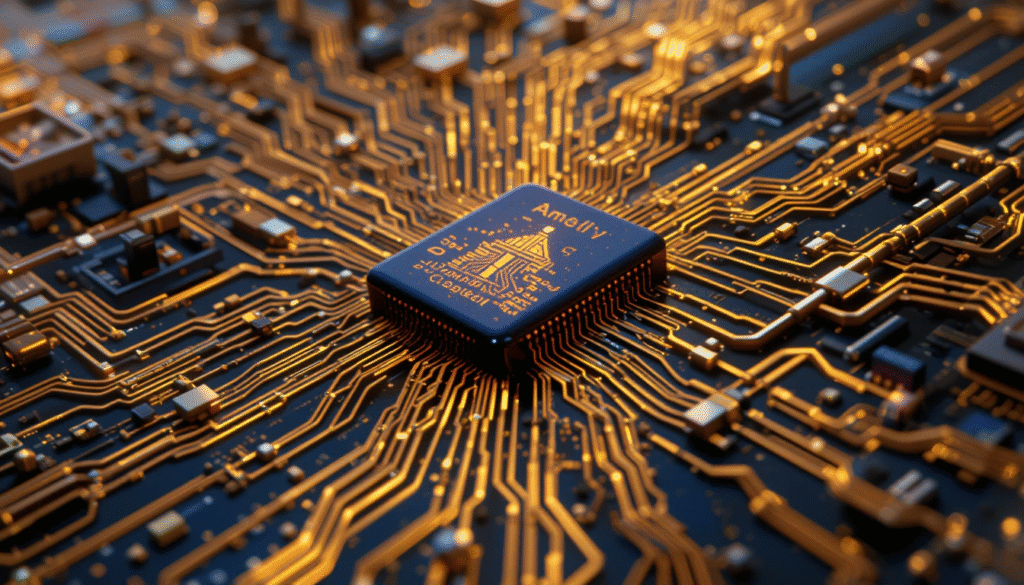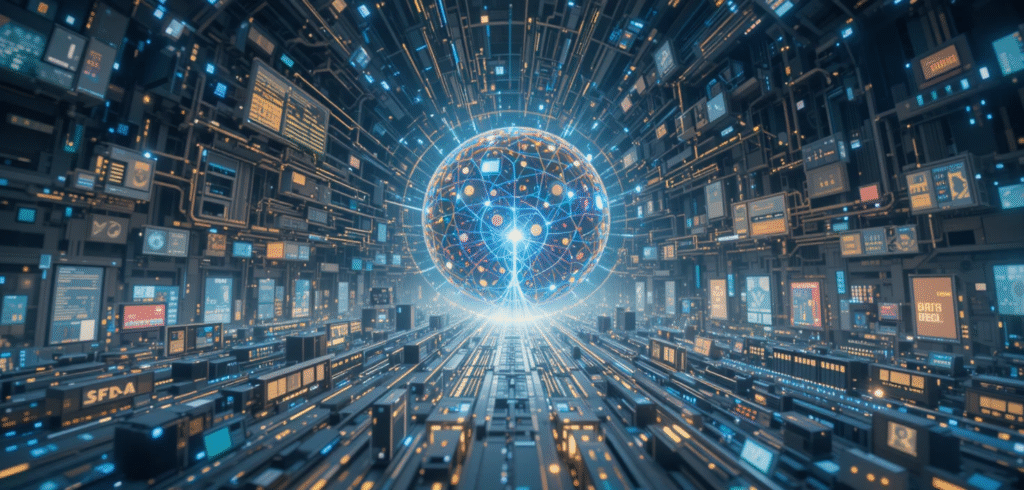As we try to handle bigger data sets, enhance artificial intelligence, and resolve very complicated issues, the limitations of classical computing are becoming more apparent in the technological world. Bits, denoted by 0 or 1, are the foundation of conventional computers. Even though this binary logic has fueled decades of invention, certain situations are too complicated for it to tackle. This is where quantum computing comes into play. Quantum computers employ qubits, which may exist in several states simultaneously, to harness the laws of quantum physics and provide them with processing capability that is unmatched.

The Science of Quantum Computing
We must first investigate quantum mechanics, the science that enables computing at the quantum level, in order to properly comprehend it. Quantum mechanics, in contrast to traditional physics, studies the peculiar and intriguing behavior of particles at the tiny level. Quantum computers can perform better than conventional computers due to two main principles:
Superposition: A qubit can exist as 0, 1, or both simultaneously, as contrast to a bit that can only be either 0 or 1. This capability significantly boosts computational parallelism, enabling quantum computers to handle many possibilities at once.
Entanglement: Despite their physical distance from one another, qubits can get entangled, which means that their states are directly similar. This characteristic increases computing performance and guarantees quicker communication between qubits.
These events are what distinguish quantum computing from conventional computing on a basic level. They lay the groundwork for resolving issues that were previously believed to be insurmountable.
Important Elements of Quantum Computers
Quantum computers are very complex devices that require careful engineering. Among the crucial elements are:
Qubits: The fundamental building block of quantum data. Quantum dots, photons, trapped ions, and superconducting circuits can all be used to implement them.
Quantum Gates: Quantum computers employ quantum gates to control qubits, just like conventional computers do with logic gates (AND, OR, NOT). These gates regulate the states’ probability amplitudes.
Quantum Algorithms: The speed and effectiveness of quantum systems are demonstrated by algorithms like Grover’s algorithm (for exploring unsorted databases) and Shor’s algorithm (for factoring big integers).
Quantum Error Correction: This is essential as qubits are extremely sensitive to noise in the environment. Redundancy and sophisticated coding guarantee precise calculations.
Cryogenic Systems: To reduce thermal noise and guarantee qubit stability, many quantum computers need to be maintained close to absolute zero.
These elements work together to create the architecture that enables large-scale quantum computing.
Quantum Level Computing Applications
Cybersecurity and Cryptography
The difficulty of factoring big prime numbers is the foundation of traditional encryption techniques like RSA. With Shor’s method, quantum computing can break these systems in a matter of seconds. As a result, post-quantum encryption has emerged to protect data in an era where quantum attacks are conceivable.
Machine Learning and Artificial Intelligence
Because they can handle large volumes of data at once, quantum computers are perfect for deep learning and machine learning models. Because quantum neural networks can swiftly spot patterns in complicated datasets, they may perform better than classical neural networks.

Drug and Medical Discovery
Quantum level molecular simulation is computationally costly on traditional computers. However, the ability of quantum computers to accurately mimic molecular interactions speeds up personalized medicine, protein folding analysis, and medication development.
Modeling Finances
The financial sector depends on risk analysis and market prediction. Quantum computing enhances decision-making in domains such as fraud detection and portfolio management by offering quicker simulations and superior optimization techniques.
Climate Modeling and Energy Efficiency
By processing large datasets from energy networks and climate models, quantum computers enable scientists to produce more precise forecasts about global warming. They also aid in the improvement of renewable energy sources and the optimization of energy distribution networks.
Quantum Computing Difficulties
Despite its potential, quantum computing has a number of difficulties.
Decoherence: Qubits can quickly lose information because to their great sensitivity to outside disturbance.
Error Correction: Qubits are more likely to make mistakes than classical bits. Research into creating reliable quantum error correcting techniques is still underway.
Scalability: It is still far from being possible to construct a massive, fault-tolerant quantum computer with millions of qubits.
Cost and Infrastructure: Because quantum machines need extremely specific settings, such as cryogenic refrigeration and vacuum systems, they are costly and challenging to maintain.
Software and Algorithms: Current quantum algorithms have a narrow range of applications, and quantum programming languages are currently being advanced.
The commercial use of quantum computing is contingent upon the resolution of these challenges.
The Quantum Level of Computing Future
Quantum computing appears to have a bright but uncertain future. Within the next ten years, it is possible that real quantum computers may outperform classical systems as researchers continue to enhance qubit stability and error correction techniques. Industries will change drastically once these technologies are scalable and dependable.
Possible long term effects include:
Data encryption and security revolution
Innovations in illness treatment and medical research
More intelligent AI that can make decisions on par with humans
Sustainable energy and climate change solutions
Quicker and more effective problem solving in science and math
It will take a while for quantum computing to become widely used, but the potential is endless.
Final Thoughts
Quantum computing is the next big technological advancement. These devices can accomplish tasks that are beyond the capabilities of traditional computers by utilizing quantum algorithms, entanglement, and superposition. Almost every aspect of human activity can benefit from the use of quantum computing, from cracking encryption to modeling intricate molecules.
While issues like cost, scalability and error correction still exist, the advancements achieved demonstrate that quantum computers are more than simply a theoretical concept. They are evolving into a useful instrument that will change the way we think about computers. Not only will quantum computing improve existing technologies in the near future, but it will also open up completely unimaginable new possibilities.



